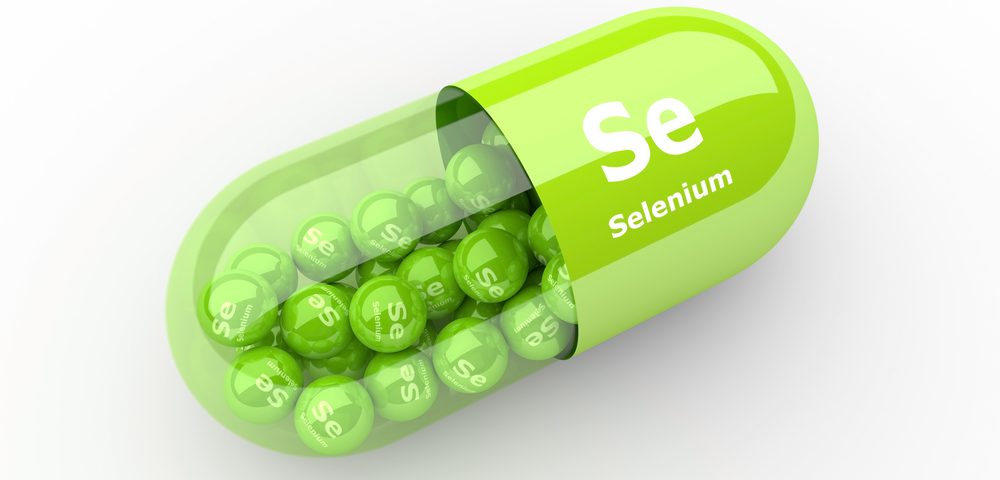Selenium, used as a nutritional supplement for decades with the belief it significantly lowered the risk of colorectal cancer, does not. Worse, in people with an adequate selenium intake, it more than doubles the risk of developing Type 2 diabetes.
Those were the conclusions reached by researchers at the University of Arizona Cancer Center, who conducted a 12-year study, Selenium Supplementation for Prevention of Colorectal Adenomas and Risk of Associated Type 2 Diabetes.” The study was published recently in the Journal of the National Cancer Institute.
Selenium, a popular nutritional supplement, has been thought to protect against the development of cancer. Indeed, studies have shown that selenium deficiency is associated with increased cancer risk, suggesting that its antioxidant properties and the ability to prevent free radicals from damaging cells and DNA play a key role in cancer prevention.
However, research also suggested that selenium could increase the risk of Type 2 diabetes.
To understand whether selenium truly could prevent colon cancer, researchers conducted a randomized, double-blind, Phase 3 clinical trial (NCT00078897) assessing the safety and effectiveness of selenium in preventing the recurrence of colon polyps.
The study enrolled 1,824 participants from clinical centers in Arizona, Colorado, Texas, and New York who were randomized to receive either selenium (200 µg daily in the form of selenized yeast), or placebo for three to five years, and then monitored for 12 years. Patients also received celecoxib (400 mg daily), a selective COX-2 inhibitor non-steroidal anti-inflammatory drug (NSAID), with or without selenium, but celecoxib was demonstrated to increase cardiovascular toxicity in patients with pre-existing cardiovascular factors.
Among 1,374 participants who took selenium or placebo and were available for analysis, results revealed that selenium did not change the risk for the development of colon polyps, the precursors of colorectal cancer, suggesting that, contrary to previous beliefs, selenium did not protect from colon cancer.
Importantly, the researchers found that selenium supplementation significantly increased the risk for Type 2 diabetes, more than doubling patients’ chances of developing the disease.
“Overall, selenium did not prevent colorectal adenomas and showed only modest benefit in patients with baseline advanced adenomas,” the researchers wrote. “With limited benefit and similar increases in T2D to other trials, selenium is not recommended for preventing colorectal adenomas in selenium-replete individuals.”
“The possibility that selenium supplements may increase the risk of Type 2 diabetes has been hinted at before,” Peter Lance, MD, deputy director of the UA Cancer Center and the study’s principal investigator, said in a press release. “But this is the first study to have substantiated such a risk in the setting of a prospective, randomized, placebo-controlled trial.”
Now, new studies are being conducted at the University of Arizona to unravel the molecular mechanisms through which selenium increases the chances of developing Type 2 diabetes.



This is very disingenuous by Ines Martins, who shows a lamentable lack of understanding of ‘study context’ to now boldly (and incorrectly) claim that Selenium does not prevent colon cancer. I could easily have predicted the results of this study as this study should never have been done in North America. Most North Americans are adequately supplied with Selenium (many blood and toenail biomarker studies of their selenium status show this), thus of course no colon cancer preventative effect was going to be seen. This study was a waste of funding. Why weren’t the baseline selenium status of the volunteers first assessed to see if it was right to give them further supplementation? It was plain stupid to give these people extra selenium just as for the SELECT study (involving many of the same people) where the baseline Selenium status for everyone in these studies was sufficient for adequate function of the main selenium containing proteins (like SePP and GPx3) that are likely to help prevent cancer. The median Selenium blood level in this stuiyd was 135ng/ul so above what is needed for selenoprotein saturation. Why on earth then were these people given more selenium? So it is a poorly designed study that now will distort the important link between Selenium and cancer in areas of the world where the levels of selenium are much lower. For, in other parts of the world, such as many areas of Europe, Selenium is at sub-optimal levels and such a study is needed. However, the stupidity in doing this study in North America and the sweeping headlines and inadequate attention to detail of people reporting on this study like Ines Martins will obscure a very simple rationale of study context and make it very difficult to actually study this in a population setting where it should have been done in the first place. Furthermore, the findings for type 2 diabetes (T2D) are interesting but very tentative (and it was irresponsible to conduct this study in North America). The findings were only statistically significantly for an increased risk of selenium-associated T2D among older participants (RR = 2.21; 95% CI = 1.04 to 4.67, P = .03). The confidence intervals are very wide, and there are several possible confounding reasons for this finding (of which age is the most obvious). The authors acknowledge in their summary that the population is largely selenium replete. Thus why did they undertake a supplementation trial in the first place?
Hi David.
Thank you for your comment. You actually did make a very good point and we will update the story to specify that the study is based on a selenium-replete population and that selenium supplements should not be recommended to prevent colon cancer in populations that are largely selenium replete.